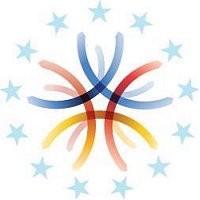 ONC Challenges designed to foster private sector innovation to enable consumers and providers to easily and securely access and share electronic health information
ONC Challenges designed to foster private sector innovation to enable consumers and providers to easily and securely access and share electronic health information
The Office of the National Coordinator for Health Information Technology (ONC) announced the Phase 1 winners of two application (app) challenges to make electronic health information easier to access and use for both consumers and providers. Applicants were challenged to use the Fast Healthcare Interoperability Resources (FHIR®) standard and open application programming interfaces (APIs), which are modern resources that make it easier to retrieve and share information superseding what currently exist in most EHRs. The two challenges, the Consumer Health Data Aggregator Challenge and the Provider User Experience Challenge, were announced by Dr. Karen DeSalvo, national coordinator for health information technology, at the Health Information Management Systems Society (HIMSS) annual conference on March 1, 2016.
Consumer Health Data Aggregator Winners
The following submissions were chosen as the best solutions addressing a need that many consumers have today – the ability to easily and electronically access their health data from different health care providers using a variety of different health IT systems.
The four winners of Phase 1 of the ONC Consumer Health Data Aggregator Challenge, who will each receive a $15,000 award, are:
- Green Circle Health: The Green Circle platform intends to provide a comprehensive family health dashboard covering the full Common Clinical Data Set and using FHIR to transfer patient information. It will also incorporate patient-generated health data from wearables, sensors, and other connected devices.
- HealthCentrix: The Prevvy Family Health Assistant app suite provides the capabilities to manage an entire family’s health and wellness, including targeted information exchange. The platform incorporates both FHIR and Direct messaging with EHRs certified to Meaningful Use Stage 2.
- Medyear: Medyear’s mobile app utilizes FHIR to merge a patient’s records from multiple sources into one clean interface. It borrows a social media-like newsfeed style to show real-time EHR updates and provides easy functionality to message and call clinicians.
- MetroStar Systems: The Locket app brings patient information from different EHRs together into a single mobile device. The app provides additional capabilities including paper-free check in and appointment scheduling and reminders.
“It is exciting to see the level of innovation that is taking place in health IT today,” said Dr. Vindell Washington, principal deputy national coordinator, announcing the Phase 1 winners at a Capitol Hill event on July 18. “The apps that these challenges will produce have the potential to spur real-world improvements for individuals and clinicians throughout the health system.”
The Provider User Experience Challenge similarly promotes the use of FHIR, but focuses on demonstrating how data made accessible to apps through APIs can enhance providers’ experience with EHRs by making clinical workflows more intuitive, specific to clinical specialty, and actionable.
The four winners of Phase 1 of the ONC Provider User Experience Challenge, who will each receive a $15,000 award, are:
- Herald Health: the Herald platform leverages FHIR to highlight the patient information that clinicians need the most. Its integration of FHIR will help enable highly customizable, IFTTT-like (“if this, then that”) alerts based on real-time EHR data.
- PHRASE Health: PHRASE (Population Health Risk Assessment Support Engine) Health aims to create a clinical decision support platform, to help better manage emerging illnesses, incorporate more external data sources into the identification of at-risk patients, and allow for the two-way exchange of data and knowledge between public health and frontline providers.
- University of Utah Health Care / Intermountain Healthcare / Duke Health System: a multi-institutional, collaborative effort to provide clinical decision support for timely diagnosis and management of newborn bilirubin according to evidence-based best practices. The collaboration intends to integrate the app across each member’s EHR platform.
- WellSheet: WellSheet’s web application seeks to utilize machine learning and natural language processing to prioritize relevant information during a patient visit. Its algorithm simplifies workflows that must incorporate multiple data sources, including those enabled by FHIR, and presents information in a single screen.
Phase 1 applicants for each of the two challenges were required to submit a series of plans for their proposed apps, including designs or screenshots, technical specifications, business/sustainability plans, and proposed provider and/or electronic health record (EHR) vendor partners to test their work. Both challenges now move to Phase 2, where the apps themselves will be evaluated. Phase 2 remains open to all potential applicants—including those that did not provide a Phase 1 submission—with submissions due November 7, 2016. In each challenge, a grand prize, a second place prize, and an “Ultimate Connector” prize will be awarded, for a total value of $100,000.
These efforts are part of a larger community-driven movement toward helping individuals and clinicians benefit from the full potential of health IT. They align with several policy objectives outlined in the Federal Health IT Strategic Plan, the Shared Nationwide Interoperability Roadmap, the Interoperability Commitments, and ONC’s Health IT Certification Program. The availability and interoperable exchange of health data and the technologies developed through this initiatives also have the potential to support other priority work such as delivery system reform, the Precision Medicine Initiative, the National Cancer Moonshot, and efforts to combat the opioid crisis.
For more information, visit the ONC’s Connecting and Accelerating a FHIR App Ecosystem.
